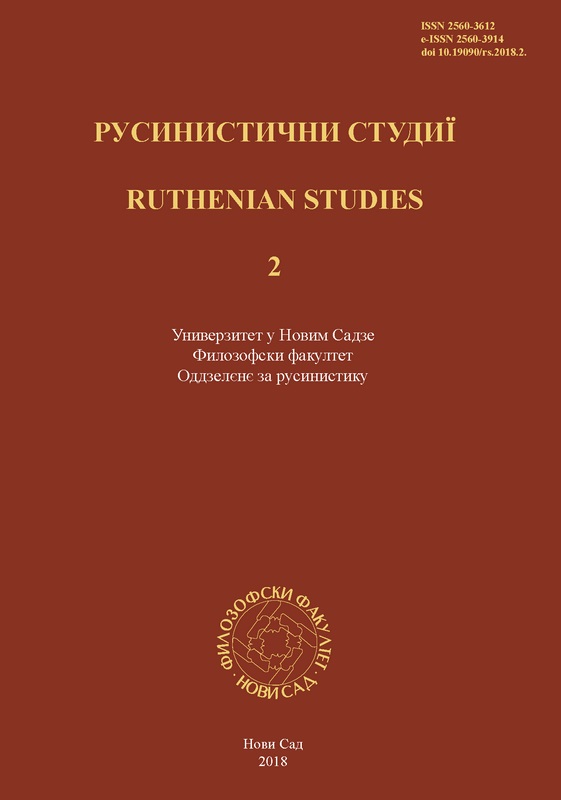Similarities and Differences between the English Verb be and the Ruthenian Verb буц
Similarities and Differences between the English Verb be and the Ruthenian Verb буц
Author(s): Marina ŠlemenderSubject(s): Morphology, Comparative Linguistics, Philology
Published by: Филозофски факултет, Универзитет у Новом Саду
Keywords: English; Ruthenian; the verb be; the verb буц; contrastive linguistics
Summary/Abstract: The verb be has been thoroughly researched in English language, and its equivalent in Ruthenian language, the verb буц, has been researched as well, although not as completely. However, the attention has not been given to contrasting these two verbs. For this reason, in the first part of this paper, the author will collect and present relevant research of several linguists of both languages, and in the second part, she will contrast these verbs through the analysis of the survey, which contains sentences relevant to this topic, originally in English and translated into Ruthenian. Based on the previously mentioned research and analysis, the author will provide a conclusion in which the explanations about how the verb be is transferred or translated into Ruthenian language will be given. Additionally, in the conclusion, the author will emphasize the similarities and differences between the two verbs, concerning their use, form and function.
Journal: Русинистични студиї
- Issue Year: 2018
- Issue No: 2
- Page Range: 107-123
- Page Count: 17
- Language: English

